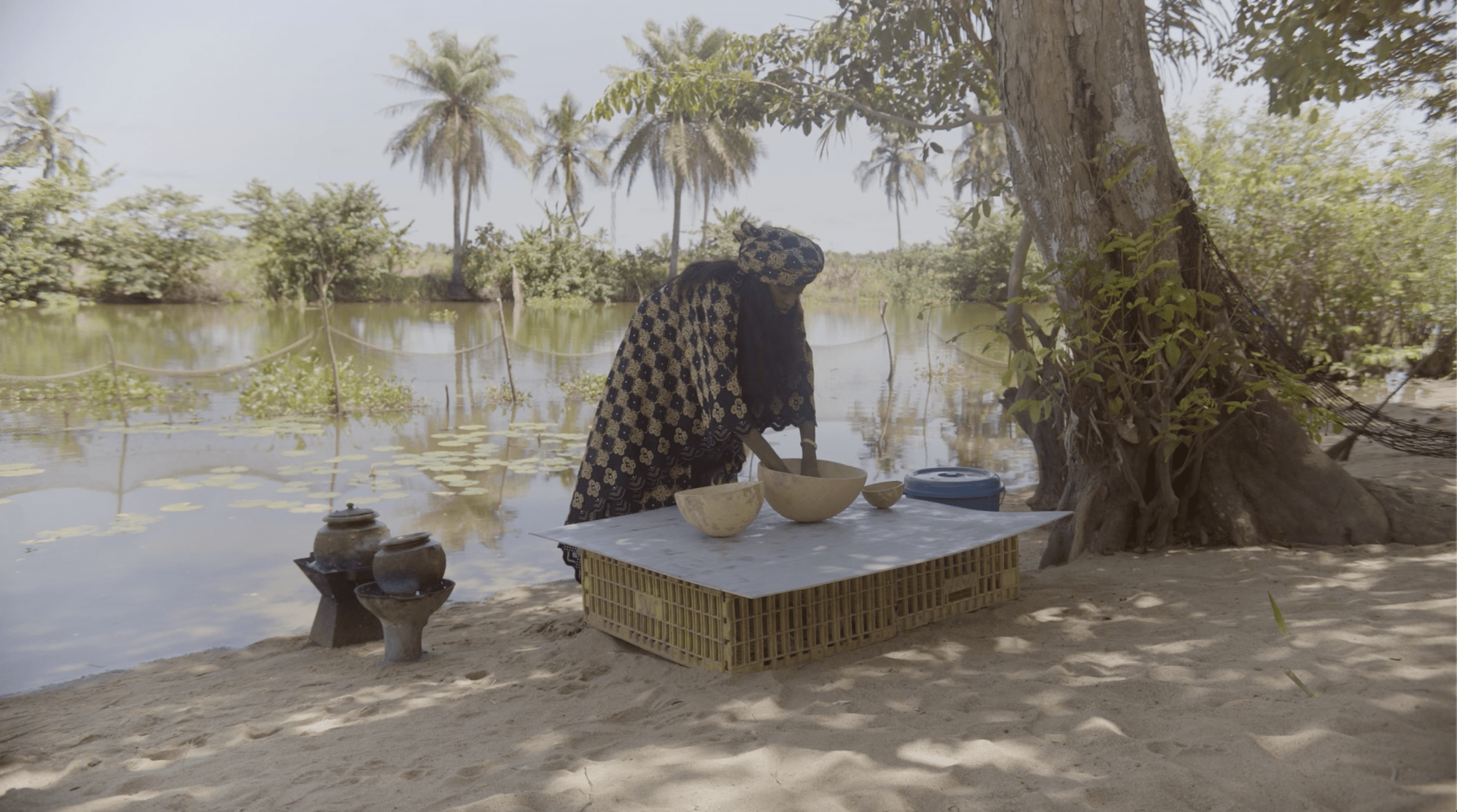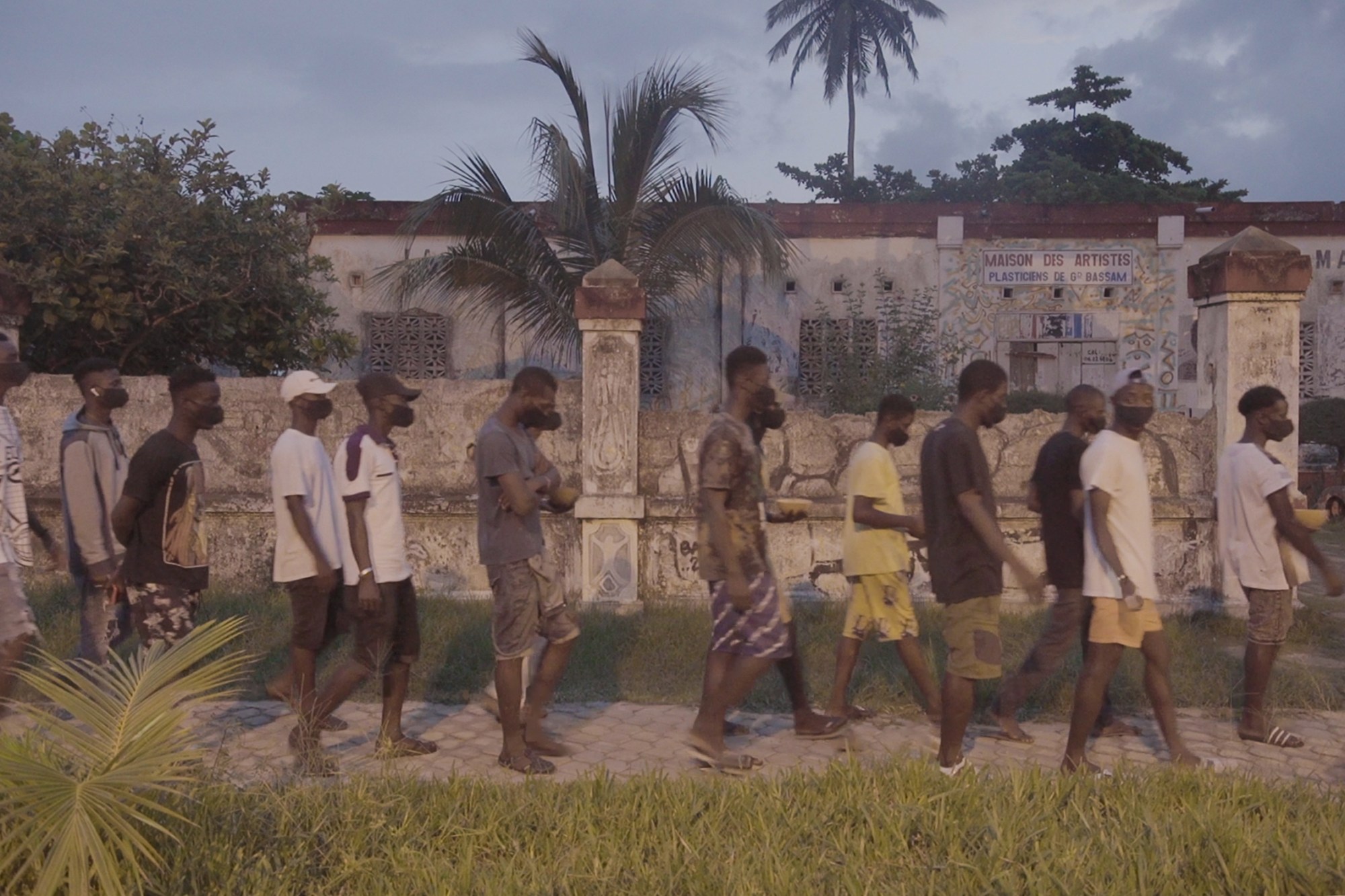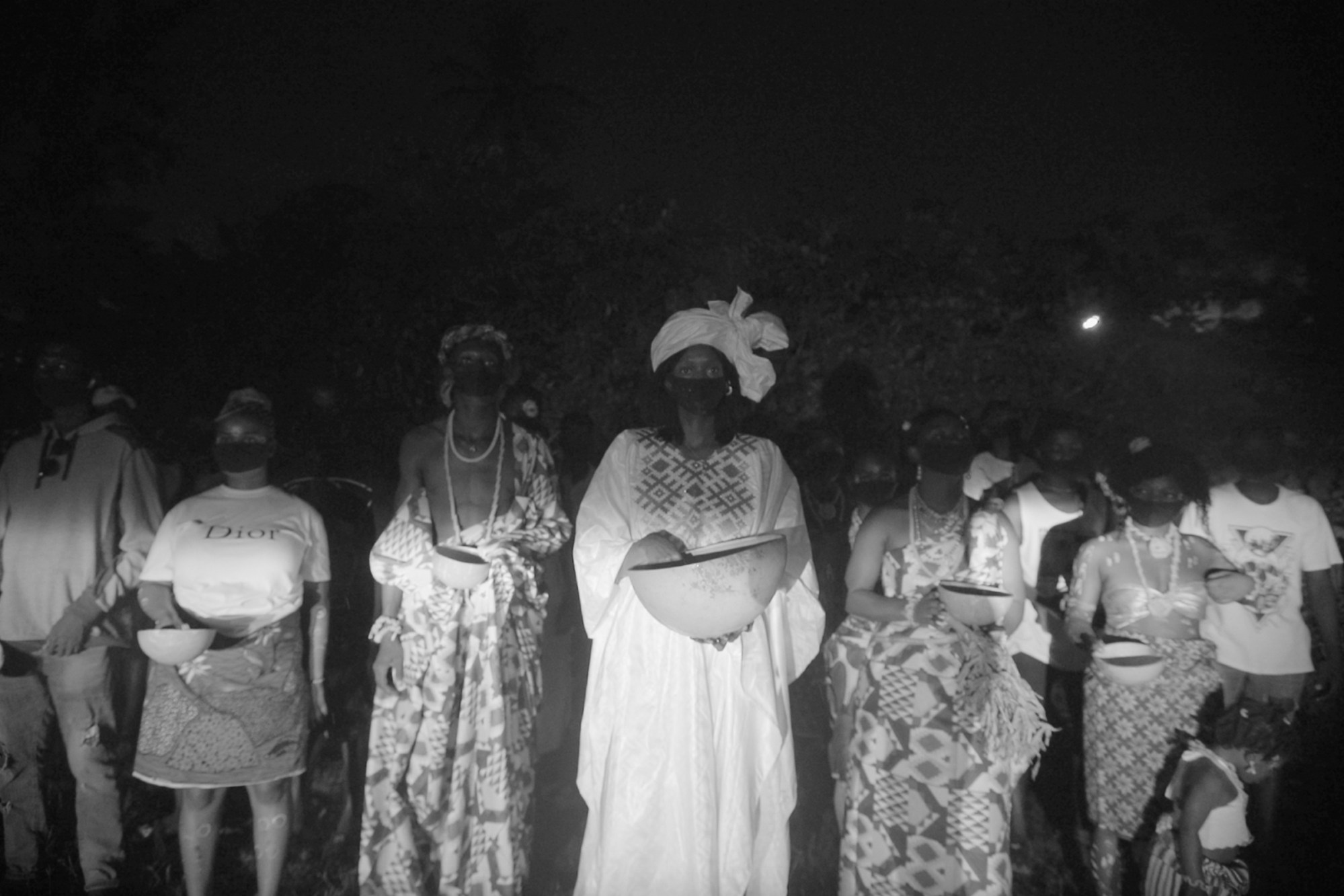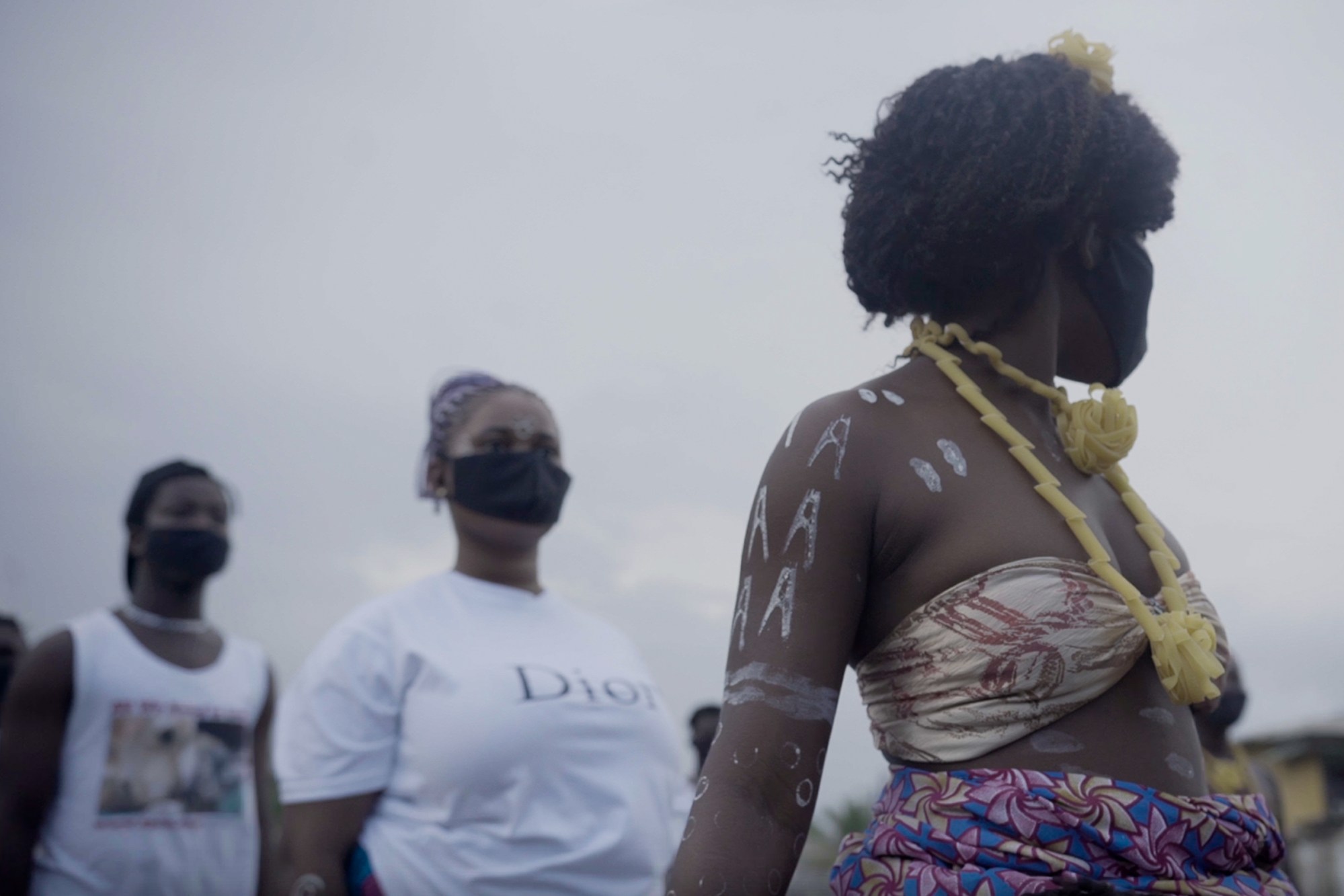As a consequence of the Black Lives Matter movement, the current discourse is rightfully focused on eradicating the systemic anti-Black racism that permeates our social fabric. Despite the productive discussions had so far, bringing with them plights, promises and gestures of change, there remain many areas in which racism is insidiously performed that have been omitted from the conversation.
For Ramata Cissé, a Canadian-Ivorian artist and chef, one such area is food. Her experiences of growing up in Ottawa as the child of two first-generation migrants from Côte d’Ivoire will be familiar to so many others with similar migratory backgrounds — irrespective of where from. Surrounded by a Western culinary culture that’s globally branded as one of aspirational standing, she believed that the food prepared and eaten by her parents was somehow of lower worth — something to be “ashamed of”, she says.
In the time that’s passed since her Ontarian childhood — which has seen her train as a chef; work as a creative director on collaborative projects with Michèle Lamy, Giovanni Bassan and Adesuwa Aighewi; and relocate to Abidjan, Côte d’Ivoire’s largest city — she’s realised that the perspectives she once held on Ivorian food and heritage were the result of colonial inculcation. “I think it’s 100% a product of colonisation,” Ramata says, “we were taught that everything we do isn’t good enough — that our traditional ways of being are ‘savage’. Colonial ideals and ways of being have been imprinted in our minds.”

To grapple with the complexities of ongoing oppression in postcolonial Africa, touching upon issues of internalised racism and identity reclamation, Ramata deploys food as her medium, turning the act of cooking into a ritualistic activation of culture and memory.
The results of her unique creative approach can be seen in her two recent filmed performance works: Project 000: NOM and Project 001: Sheep Guts Stir Fry. In the former, Ramata choreographed an emphatic protestation piece, calling for peace in response to centuries of Black oppression: marching with 50 protestors past the crumbling villas of Grand-Bassam, Côte d’Ivoire’s colonial-era capital, Ramata offers ‘nono’ (‘milk’ in Dioula) to the beat of traditional drums. In the latter, she explores her own relationship to colonialism through the careful preparation of a sacrificed sheep’s entrails. In doing so, she showcases the value worth cherishing in food, and by extension the culture of which it’s a product, that is often dismissed or demeaned.
To learn more about her rich, idiosyncratic practice, we spoke with Ramata over the phone from her home in Abidjan.
How far back does your interest in food and cooking as a creative medium go?
Seriously, since I was about four years old. I didn’t grow up rich — my parents are first-generation immigrants to Canada. The only thing that bonded us together as an Ivorian community was food. Despite not having much, my mom would always cook for everybody, and they would come to eat at our house. We created our own village within Canadian society. That really cultivated my interest in food. t’s something truly beautiful. Every ingredient has a history and its own story to tell. The way you plate food and put it together is aesthetic in and of itself, but it also tells a story — it’s really a form of art.
With all the different conversations around systemic and structural racism at the moment, food is a theme that’s been rather overlooked. Much African food, for example, has often been considered in a really demeaning light in Western spaces.
That’s so right. My dad was a professor, but he eventually lost his job. When he did, he started a chicken restaurant — barbecued chicken is one of the national foods of Côte d’Ivoire. But I was so ashamed of it growing up, just because it was associated with Africa. In my environment, growing up in Ottawa, it was like ‘No, you can’t openly be African like that.’ It’s not that I would have been segregated for doing so, but I wanted to fit in. It wasn’t posh, it wasn’t boujee, it wasn’t what ‘normal’ Canadians ate. Now, having grown up, it’s something I’m proud of — it’s my heritage.

When did you realise that food and your relationship to it were such important aspects of your heritage?
I think it was when I started modelling at 16 and started travelling. I saw that people would deconstruct something that I grew up eating, and suddenly it was seen as chic, which to me was ridiculous. It would be a similar meal to what my mum would make at home, but sold for 10 times more than what she could charge. I realised that food is one big family — it’s just the way you combine ingredients together that makes it specific to a culture. We all have grains, we all have herbs, we all have nuts. It’s the way we pair them together and plate them that dictates how they’re perceived.
Coming onto Project 000: NOM and Project 001: Recipe — Sheep Guts Stir Fry specifically, how would you introduce the two pieces of work?
They’re really about me having a conversation through food. I grew up in Ottawa, and I’m now based in Abidjan, so I do a lot of back and forth. The conversations and narratives here are totally different those you’ll hear in the US and Canada at the moment. Moving to Côte d’Ivoire, I never realised how much I was suffering inside and the extent of the past trauma I had. I find that can communicate that in a calm, beautiful way through my food, without being too in-your-face about it.
Project 000 was really intended as an introduction to a wider series — I wanted to introduce the emotional point of view, and have people really feel that and be part of it, to see our culture. Project 001 introduces a more theoretical, technical aspect. Project 000 is about getting to the guts of what I’m discussing, and Project 001 is me making that message tangible.
Pulling it off wasn’t easy, though. As I said, the conversation here in Africa is very different to what it is in Europe and America. We Africans have so many resources, but we’re not even capable of utilising them as we’re still being oppressed. When you try to discuss this here, people are often like, ‘No, what are you talking about? The white people are helping us! Racism doesn’t exist! Oppression doesn’t exist!’
It was even hard to get people to want to walk for Project 000. Still, it was very important for us to do this, to show the world that oppression is still happening, and it’s happening here. I wanted to show that we’re united with the conversations taking place in the rest of the world.

So this was the emotional ‘heart’ of the project. But, as you mentioned, the next part Project 001 is a more practical engagement with the ‘guts’ of the issue at hand. And in quite a literal sense.
Yes! Well, for me, Sheep Guts Stir Fry really deals with colonisation. If you come to Cote d’Ivoire, you’ll realise that we’ve lost a lot of our culture — we don’t know who we are any more. For example, though I was born in Canada, I understand and speak my native language, but my cousins who grew up here don’t — they speak French. I wanted to show how much we lost, and are still losing, and try to gain that all back through education. We don’t realise how powerful we were before slavery — and we still have the power to get back there. We are on our own land, and we are the future now. This project was really about getting our guts back.
Would you say that your work is an attempt to rediscover or reconnect with a sense of pre-colonial identity? Is that even possible, do you think?
I think it’s totally possible. I’m working on a project with my best friend, Adesuwa. It’s called Legacy Project, and that’s the entire idea behind it. We have ancient libraries, we have the books, we have the scholars, the sages — people who know our stories. It’s about joining all of these dots together, so that today’s youth and the generations that come after them can be re-educated. I think that we can definitely reach our pre-colonial selves, but it’s a matter of us standing together and working towards that.

That comes across in the style of performance you deploy in the film. There’s a real sense of respect to the ingredients — almost a sense of ritual. What was your intention when you were ‘choreographing’ the performance, so to speak?
Growing up, my culture and my food were things that I was always ashamed of. I’m now realising how beautiful they are, so it was important for me to showcase what’s usually seen as ugly in an appealing manner. I grew up eating cow brains, which was something I was ashamed of, but it was my favourite thing to eat. This was my way of just making it inviting, visually appealing, so that people will gravitate towards it.
When people here in Côte d’Ivoire have seen these videos, they say ‘Oh my god, you see us like that?’ People still see themselves as ugly, as ‘less than’ — and that’s not who we are. It’s very important for me to liberate African people from being ashamed of who they are. To me, these videos show a beauty in our culture that I think should be seen and embraced.

